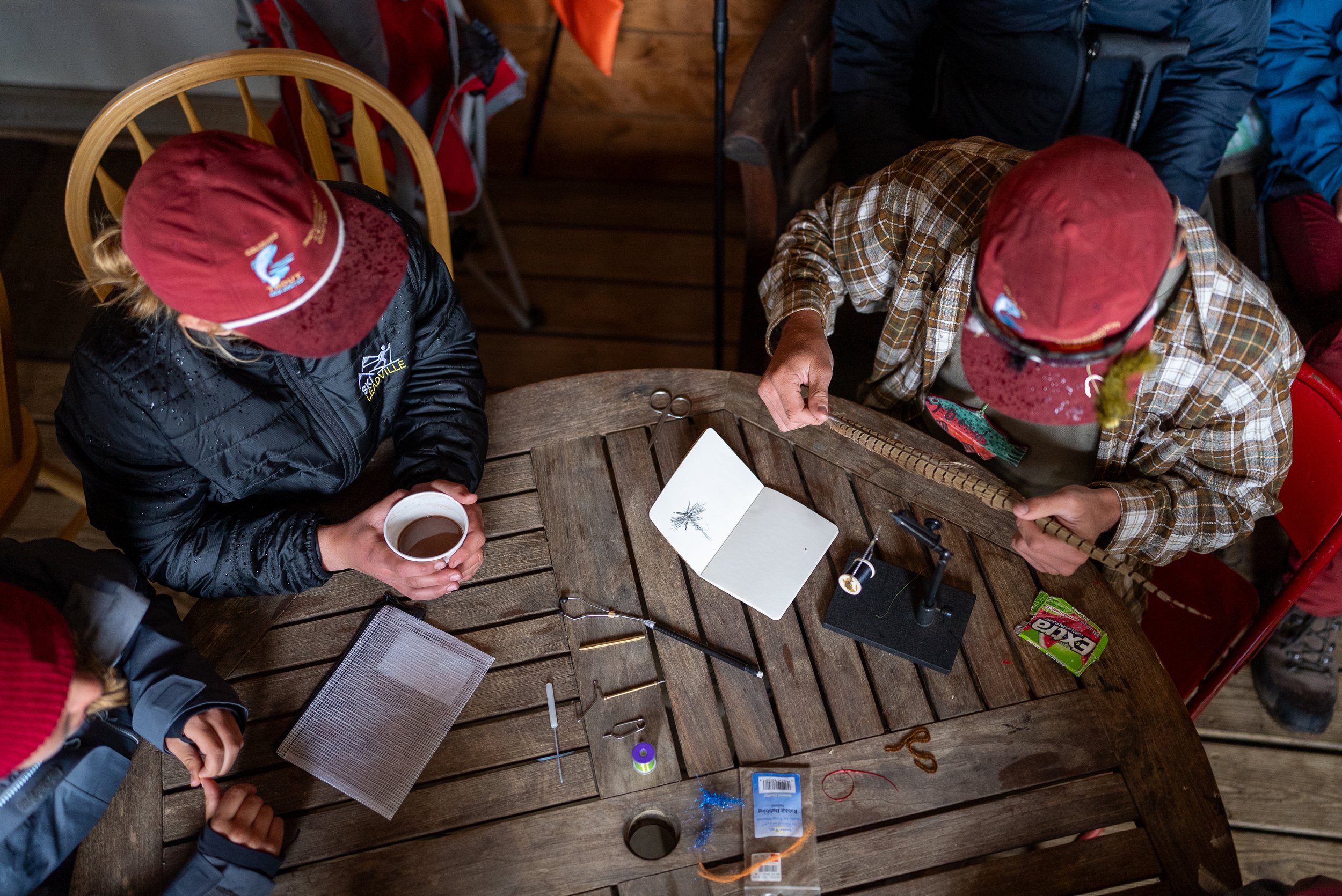Trout Unlimited and its grassroots members today called on the Army Corps of Engineers to include a river protection package recently approved by stakeholders in the final federal permit for Denver Water’s Moffat project. For more than a decade, Trout Unlimited has closely monitored the water diversion project, concerned about potential impacts on Colorado River headwater streams and their valuable wild trout fisheries. In March, TU, Denver Water and Grand County announced agreement on the Mitigation and Enhancement Coordination Plan (MECP) for Moffat. All sides hailed the stakeholder agreement as a breakthrough that balances municipal needs and environmental health.
At the time, TU emphasized that the effectiveness of this agreement depends on its formal incorporation into the final permit—a point reiterated by TU and its grassroots member during the recent public comment period for the Final Environmental Impact Statement for Moffat, which ended Monday, June 9.
“We believe that implementation of the MECP, as a whole, provides the best opportunity to prevent impacts and improve conditions in the areas most impacted by the Moffat Project,” wrote Mely Whiting, counsel for TU, in TU’s comment letter to the Corps.
The multiparty agreement offers several protections that TU says need to be included with this project. The key features include:
- Water is made available to address elevated stream temperatures on the Fraser and Ranch Creek;
- Denver uses its operating flexibility to provide flushing flows to cleanse streams;
- Ongoing monitoring of stream health, and adaptive management using water and financial resources provided by Denver Water – and leveraged by other partners;
- Commitment to this monitoring and management program—called “Learning by Doing”—through the project’s federal permit.
The centerpiece of the agreement is the Learning by Doing program, overseen by a management team that includes Denver Water, Grand County, Trout Unlimited, Colorado Parks and Wildlife, the Colorado River District and the Middle Park Water Conservancy District. Upon the project permit being issued, the management team will implement an extensive monitoring program to assess stream health based on specific parameters including stream temperature, aquatic life and riparian vegetation health. Water, financial and other resources committed by Denver Water through project mitigation, the Colorado River Cooperative Agreement and other agreements will be deployed to prevent declines and improve conditions where needed.
In recent weeks, hundreds of TU members have written to the Army Corps, calling on the agency to formally include the MECP agreement in the permit requirements.
“Though I now live in Georgia, I have spent much of my life in Colorado trout streams, and I can attest first hand that further damage to the Fraser will destroy a national treasure,” said Richard Tatem.
“This agreement, the Mitigation and Enhancement Coordination Plan, will protect a river which has been allowed to deteriorate for the past decade,” wrote Jim Belknap, a TU member and Colorado native who grew up in the Fraser Valley. “I have witnessed water temperatures reach dangerous levels while fishing the river the past few years; I have also seen more dead fish in the river—most likely due to the stress of being caught and released in too warm of water. This is a tragic misuse of Colorado's resources, and is resulting in the loss of one of the most beautiful river systems in Colorado. Please help restore the Fraser River to a healthy, thriving river-the type of attribute of Colorado's natural beauty, which has always been one of the state's greatest attractions and economic strengths.”
“I have fished the Fraser River for 20 years and the new Moffat Tunnel would be disastrous unless you make the Mitigation and Enhancement Coordination Plan (MECP) part of the federal permit,” wrote Tom Ciaglo of Louisville, CO.
Several other conservation groups—including Western Resource Advocates, American Rivers, the Sierra Club, and Conservation Colorado—have joined TU in calling for inclusion of the MECP in the final record of decision for the Moffat permit.







